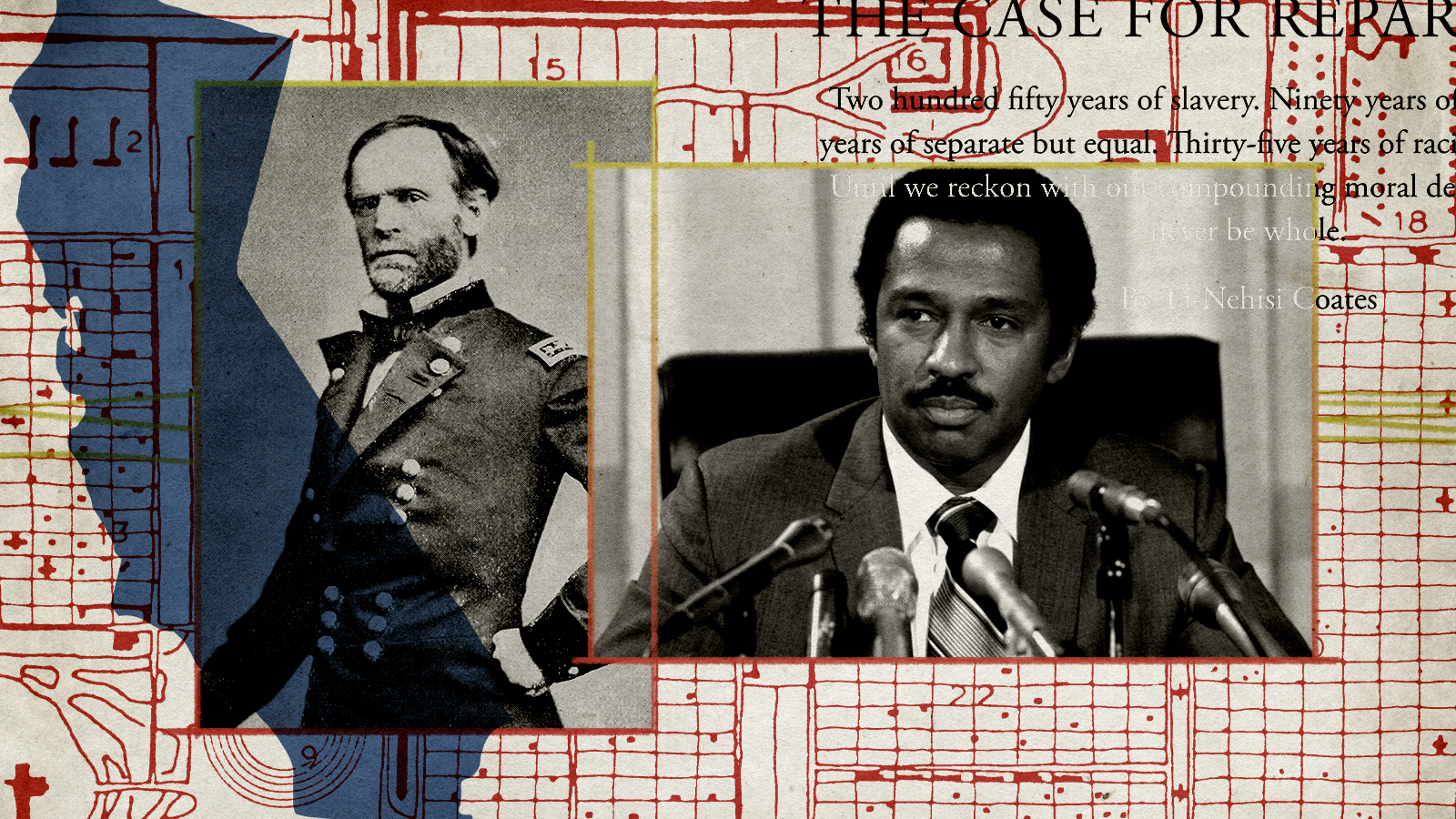Why California is considering reparations for racism
And why the idea is spreading


A free daily email with the biggest news stories of the day – and the best features from TheWeek.com
You are now subscribed
Your newsletter sign-up was successful
Black Americans — some of them anyway — might soon receive reparations for the country's legacy of slavery and racism. In California, a task force is debating "recommendations for how the state can atone for and address its legacy of discriminatory policies against Black Californians," The Associated Press reports. But it's not just California: Officials in Boston and Kansas City are also discussing what reparations might look like in their cities. Many other towns, cities, and colleges are doing the same. What are the arguments for and against reparations? Here's everything you need to know:
When did the discussion of reparations start?
Even before the Civil War ended. In 1865, Maj. General William Tecumseh Sherman famously ordered that "40 acres and a mule" be given to Black Americans freed from slavery. "That account is half-right: Sherman prescribed the 40 acres in that order, but not the mule," Henry Louis Gates explains in his PBS show The African Americans. "The mule would come later." The order was designed to answer a simple but urgent question as slavery ended, DeNeen L. Brown writes for The Washington Post: "How would thousands of newly freed Black people survive economically after more than 200 years of bondage and unpaid labor?" But the order was quickly reversed after President Abraham Lincoln was assassinated and his successor, President Andrew Johnson, issued an "amnesty" order that evicted most of the former enslaved people from their new land. "Thousands of Black people left without land were eventually forced into sharecropping and peonage."
Why talk about reparations now?
The discussion has been going on for a long time. For example: Rep. John Conyers (D-Mich.) spent decades backing a bill that would force the U.S. government to study the issue, but it went nowhere.
The Week
Escape your echo chamber. Get the facts behind the news, plus analysis from multiple perspectives.

Sign up for The Week's Free Newsletters
From our morning news briefing to a weekly Good News Newsletter, get the best of The Week delivered directly to your inbox.
From our morning news briefing to a weekly Good News Newsletter, get the best of The Week delivered directly to your inbox.
Two events seem to have given fresh energy to the modern reparations movement, though. The first was a 2014 article in The Atlantic by Ta-Nehisi Coates, in which he argued that racism in America — not just slavery, but also Jim Crow and "redlining" housing policies, among other factors — engineered a wealth gap between Blacks and whites "which remains with us to this day." (He suggested that real reparations would involve more than cutting checks, but would involve "a national reckoning that would lead to spiritual renewal.") And the 2020 death of George Floyd at the hands of Minneapolis police officers sparked a national outcry that led directly to the current California task force.
What might reparations look like?
Evanston, Illinois, in 2021 became the first American city to authorize reparations: The first phase involved giving 16 residents $25,000 each to make home repairs. One critic called the effort "a housing plan dressed up as reparations," while another suggested that "giving $400,000 to 16 Black people in a town of 12,000 Black residents is not reparation." That's just one example. Another is the 1988 federal law that paid $20,000 each to more than 80,000 Japanese Americans who were interned by the U.S. during World War II. So is Germany's decades-long efforts to compensate Holocaust survivors after the war.
Coming up with a workable proposal is hard and often controversial work, however. In California, the task force decided this year "to limit reparations to descendants of Black people in the United States as of the 19th century, either as freed or enslaved people," AP reports. And there is still much work to be done figuring out "how financial compensation might be calculated and what might be required to prove eligibility."
Are there any objections to reparations?
Yes. While polling shows that support for the idea has grown over the years, it's still the case that "a national majority opposes reparations," USA Today reports. Those polls show that Black Americans are for reparations, while whites are mostly against them. "For African Americans, [there's] the belief that the current socioeconomic inequalities and inequities are a reflection in some sense of the continued legacy of the institution of slavery," Tatishe Nteta of the University of Massachusetts-Amherst tells the paper. "Whites don't view the issue in this particular fashion. They're looking at it not in a historical lens primarily. The majority of whites are looking at it in terms of African Americans today have done little to deserve" reparations.
A free daily email with the biggest news stories of the day – and the best features from TheWeek.com
What's next?
The California task force faces a July 1 deadline to complete its work. (Gov. Gavin Newsom has vetoed efforts to extend that time frame.) In other places, talk of reparations is just getting underway. Boston just passed its ordinance to study the issue, while officials in Kansas City and New York State are considering their own bills. The discussion about reparations has been going on for decades — but in some ways, it's just beginning.
Joel Mathis is a writer with 30 years of newspaper and online journalism experience. His work also regularly appears in National Geographic and The Kansas City Star. His awards include best online commentary at the Online News Association and (twice) at the City and Regional Magazine Association.
